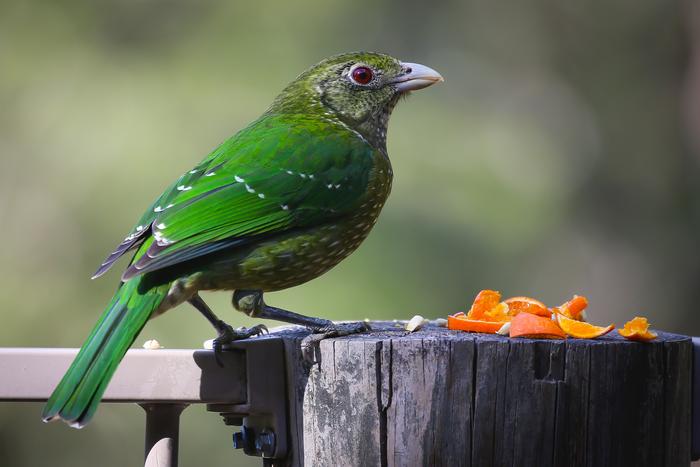Interest in local bird feeding appears to have ramped up in countries all over the world during the pandemic lockdowns, even in countries not historically noted for bird feeding practices, according to a study published August 2, 2023 in the open-access journal PLOS ONE by Jacqueline Doremus from California Polytechnic State University and Liqing Li from Texas A&M University College Station, US, and Darryl Jones from Griffith University, Australia.

Credit: mark broadhurst, Pexels, CC0 (https://creativecommons.org/publicdomain/zero/1.0/)
Interest in local bird feeding appears to have ramped up in countries all over the world during the pandemic lockdowns, even in countries not historically noted for bird feeding practices, according to a study published August 2, 2023 in the open-access journal PLOS ONE by Jacqueline Doremus from California Polytechnic State University and Liqing Li from Texas A&M University College Station, US, and Darryl Jones from Griffith University, Australia.
Feeding wild birds is a popular nature-based pastime because of its simplicity, low cost, and accessibility in even urban environments. Previous research has shown that there was a surge of interest in bird identification and bird feeding in the US and some European countries during the COVID-19 pandemic. Here, the authors analyzed whether there was increased interest in bird feeding and wild birds at a global, individual-country scale during and after COVID-19 lockdowns compared to before. They also examined whether the level of interest in bird feeding in a country is linked to species richness.
The authors assessed the weekly frequency of search terms like “bird feeder”, “bird food”, and “bird bath” on Google for all countries with sufficient search volumes from January 1, 2019 to May 31, 2020 to see if an increase in bird searches occurred during each country’s specific lockdown period (generally around February-April 2020). They also accessed nation-level bird species data from BirdLife International to measure species richness.
There was a significant surge in bird feeding interest as measured by frequency of bird-related searches across 115 of the countries surveyed during the general lockdown period, in both the Northern and Southern Hemispheres.
Countries that lacked bird-related search interest had an average of 294 bird species (standard deviation 288.6 species), whereas countries that demonstrated a bird search interest had an average of 511 bird species (standard deviation 400.5 species), a significant increase in bird diversity over countries measured as less interested.
Because the proxy measurement for bird feeding interest is a Google search, countries with lower income or less internet access may not have been adequately captured despite their bird feeding practices. However, the authors note that their method was still able to capture a surge of interest in bird feeding not limited to traditional locations like the UK and US—e.g., Pakistan and Kenya.
The COVID-19 lockdowns likely encouraged people all over the world to seek connection and interaction with their local bird communities; the authors hope future studies can further analyze the global extent of bird feeding and specifically capture more data in previously understudied countries.
The authors add: “Up until now, most evidence on bird feeding has been limited to the US, Europe, Australia and India, however we suspected bird feeding might be more widespread. This is important to know because bird feeding affects bird health and migration patterns. Our study uses COVID restrictions to reveal interest in bird feeding worldwide, and we find that people on six continents, in both hemispheres, are interested in feeding birds.”
#####
In your coverage please use this URL to provide access to the freely available article in PLOS ONE: https://journals.plos.org/plosone/article?id=10.1371/journal.pone.0287116
Citation: Doremus J, Li L, Jones D (2023) Covid-related surge in global wild bird feeding: Implications for biodiversity and human-nature interaction. PLoS ONE 18(8): e0287116. https://doi.org/10.1371/journal.pone.0287116
Author Countries: USA, Australia
Funding: The authors received no specific funding for this work.
Journal
PLoS ONE
DOI
10.1371/journal.pone.0287116
Method of Research
Observational study
Subject of Research
People
Article Title
Covid-related surge in global wild bird feeding: Implications for biodiversity and human-nature interaction
Article Publication Date
2-Aug-2023
COI Statement
The authors have declared that no competing interests exist.




